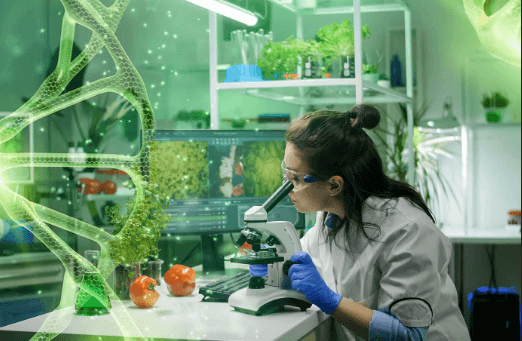How many jobs are available in biotechnology laboratory analytical instruments

the fields of biotechnology and genetics have witnessed remarkable advancements that are reshaping the landscape of healthcare and pushing the boundaries of human understanding. From the precision of CRISPR gene editing to the tailored approach of personalized medicine, and the daring innovations of biotech startups, this article delves into the exciting developments that hold the promise of revolutionizing healthcare for generations to come.
CRISPR Gene Editing Advancements:
CRISPR-Cas9, often referred to as a molecular scalpel, has emerged as a transformative tool in genetic research and medical applications. Scientists can now edit DNA with unprecedented precision, correcting genetic mutations that contribute to diseases. CRISPR has opened doors to potential cures for genetic disorders such as sickle cell anemia and cystic fibrosis, spurring hope for more effective treatments. The ethical implications of gene editing, however, continue to spark important discussions around responsible research and the boundaries of human intervention.
Personalized Medicine Breakthroughs:
The era of one-size-fits-all medicine is giving way to personalized treatments tailored to an individual’s unique genetic makeup, lifestyle, and medical history. Rapid advances in genomics and data analytics enable healthcare professionals to predict disease susceptibility, choose the most effective therapies, and minimize adverse effects. Personalized medicine has the potential to revolutionize cancer treatment, optimize drug regimens, and enhance preventive care. As the journey from genetic data to actionable medical insights accelerates, ethical considerations about data privacy and equitable access are gaining prominence.
Biotech Startups and Innovations:
The biotechnology sector is experiencing a vibrant surge of startups and innovations that challenge conventional medical practices. These ventures are developing cutting-edge therapies, diagnostic tools, and medical technologies that harness the power of genetics and molecular biology. Startups are at the forefront of advancements in areas such as regenerative medicine, gene therapies, and precision diagnostics. Their nimble approach and focus on disruptive solutions are reshaping the healthcare landscape and driving rapid progress in diverse medical fields.
Synthetic Biology Developments:
Synthetic biology combines engineering principles with biology to create novel biological systems or redesign existing ones. This field holds great promise for applications ranging from sustainable biofuels to new drug production methods. Synthetic biology enables the design of organisms with enhanced abilities, such as bacteria engineered to produce medical compounds. As breakthroughs in synthetic biology unfold, discussions around safety, biosecurity, and the responsible use of engineered organisms become paramount.
Ethical Discussions in Biotechnology:
The rapid pace of biotechnological advancements has ignited a range of ethical debates. Questions about the ethical implications of gene editing, the potential for designer babies, and the ownership and privacy of genetic data are commanding global attention. Balancing the promise of medical progress with the need for responsible research and equitable distribution of benefits presents complex challenges. Robust ethical frameworks are essential to guide scientific exploration and ensure that biotechnology serves humanity’s best interests.
Conclusion:
The intersection of CRISPR gene editing, personalized medicine, biotech startups, synthetic biology, and ethical considerations is reshaping the way we approach healthcare and human well-being. These advancements offer unprecedented opportunities to treat diseases at their root, tailor interventions to individual needs, and explore innovative solutions to medical challenges. As society navigates these transformative changes, it is essential to foster a collaborative dialogue that aligns scientific progress with ethical values, ensuring that biotechnology continues to improve and enrich human lives while upholding the principles of responsible innovation.





